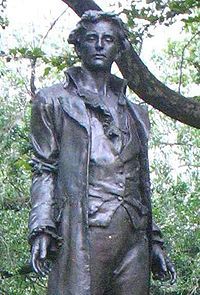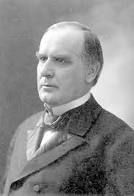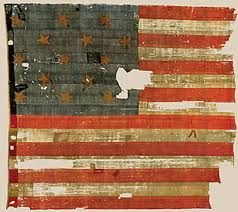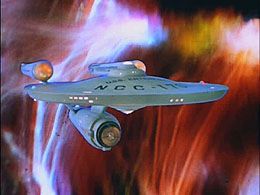Cross posted from The Stars Hollow Gazette
Find the past “On This Day in History” here.
September 10 is the 253rd day of the year (254th in leap years) in the Gregorian calendar. There are 112 days remaining until the end of the year
On this day in 1776, Nathan Hale volunteers to spy behind British lines
 On this day in 1776, General George Washington asks for a volunteer for an extremely dangerous mission: to gather intelligence behind enemy lines before the coming Battle of Harlem Heights. Captain Nathan Hale of the 19th Regiment of the Continental Army stepped forward and subsequently become one of the first known American spies of the Revolutionary War.
On this day in 1776, General George Washington asks for a volunteer for an extremely dangerous mission: to gather intelligence behind enemy lines before the coming Battle of Harlem Heights. Captain Nathan Hale of the 19th Regiment of the Continental Army stepped forward and subsequently become one of the first known American spies of the Revolutionary War.
the Battle of Long Island, which led to British victory and the capture of New York City, via a flanking move from Staten Island across Long Island, Hale volunteered on September 8, 1776, to go behind enemy lines and report on British troop movements. He was ferried across on September 12. It was an act of spying that was immediately punishable by death, and posed a great risk to Hale.
An account of Nathan Hale’s capture was written by Consider Tiffany, a Connecticut shopkeeper and Loyalist, and obtained by the Library of Congress. In Tiffany’s account, Major Robert Rogers of the Queen’s Rangers saw Hale in a tavern and recognized him despite his disguise. After luring Hale into betraying himself by pretending to be a patriot himself, Rogers and his Rangers apprehended Hale near Flushing Bay, in Queens, New York. Another story was that his Loyalist cousin, Samuel Hale, was the one who revealed his true identity.
British General William Howe had established his headquarters in the Beekman House in a rural part of Manhattan, on a rise between 50th and 51st Streets between First and Second Avenues Hale reportedly was questioned by Howe, and physical evidence was found on him. Rogers provided information about the case. According to tradition, Hale spent the night in a greenhouse at the mansion. He requested a Bible; his request was denied. Sometime later, he requested a clergyman. Again, the request was denied.
According to the standards of the time, spies were hanged as illegal combatants. On the morning of September 22, 1776, Hale was marched along Post Road to the Park of Artillery, which was next to a public house called the Dove Tavern (at modern day 66th Street and Third Avenue), and hanged. He was 21 years old. Bill Richmond, a 13-year-old former slave and Loyalist who later became famous as an African American boxer in Europe, was reportedly one of the hangmen, “his responsibility being that of fastening the rope to a strong tree branch and securing the knot and noose.”
By all accounts, Hale comported himself eloquently before the hanging. Over the years, there has been some speculation as to whether he specifically uttered the famous line:
I only regret that I have but one life to give for my country.
But may be a revision of:
I am so satisfied with the cause in which I have engaged that my only regret is that I have not more lives than one to offer in its service.
The story of Hale’s famous speech began with John Montresor, a British soldier who witnessed the hanging. Soon after the execution, Montresor spoke with the American officer William Hull about Hale’s death. Later, it was Hull who widely publicized Hale’s use of the phrase. Because Hull was not an eyewitness to Hale’s speech, some historians have questioned the reliability of the account





 The Pentagon is the headquarters of the
The Pentagon is the headquarters of the  On this day in 1776, General George Washington asks for a volunteer for an extremely dangerous mission: to gather intelligence behind enemy lines before the coming Battle of Harlem Heights. Captain Nathan Hale of the 19th Regiment of the Continental Army stepped forward and subsequently become one of the first known American spies of the Revolutionary War.
On this day in 1776, General George Washington asks for a volunteer for an extremely dangerous mission: to gather intelligence behind enemy lines before the coming Battle of Harlem Heights. Captain Nathan Hale of the 19th Regiment of the Continental Army stepped forward and subsequently become one of the first known American spies of the Revolutionary War.
 On this day in 1776, the Continental Congress formally declares the name of the new nation to be the “United States” of America. This replaced the term “United Colonies,” which had been in general use.
On this day in 1776, the Continental Congress formally declares the name of the new nation to be the “United States” of America. This replaced the term “United Colonies,” which had been in general use. The name is linked to Samuel Wilson, a meat packer from Troy, New York, who supplied barrels of beef to the United States Army during the War of 1812. Wilson (1766-1854) stamped the barrels with “U.S.” for United States, but soldiers began referring to the grub as “Uncle Sam’s.” The local newspaper picked up on the story and Uncle Sam eventually gained widespread acceptance as the nickname for the U.S. federal government.
The name is linked to Samuel Wilson, a meat packer from Troy, New York, who supplied barrels of beef to the United States Army during the War of 1812. Wilson (1766-1854) stamped the barrels with “U.S.” for United States, but soldiers began referring to the grub as “Uncle Sam’s.” The local newspaper picked up on the story and Uncle Sam eventually gained widespread acceptance as the nickname for the U.S. federal government. Calvin Edwin “Cal” Ripken, Jr. (born August 24, 1960) is a former Major League Baseball shortstop and third baseman who played his entire career (1981-2001) for the Baltimore Orioles.
Calvin Edwin “Cal” Ripken, Jr. (born August 24, 1960) is a former Major League Baseball shortstop and third baseman who played his entire career (1981-2001) for the Baltimore Orioles.